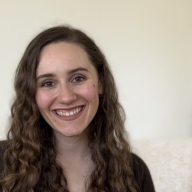
Abbey Chaver
Product Manager @ Chime
Bio
Participation2
PM at Chime, which provides fee-free banking for low-income Americans. I work on our machine learning platform and fraud models.
Interested in global health and poverty reduction, and global resilience to catastrophic shocks like pandemics, cyber attacks, and war.
